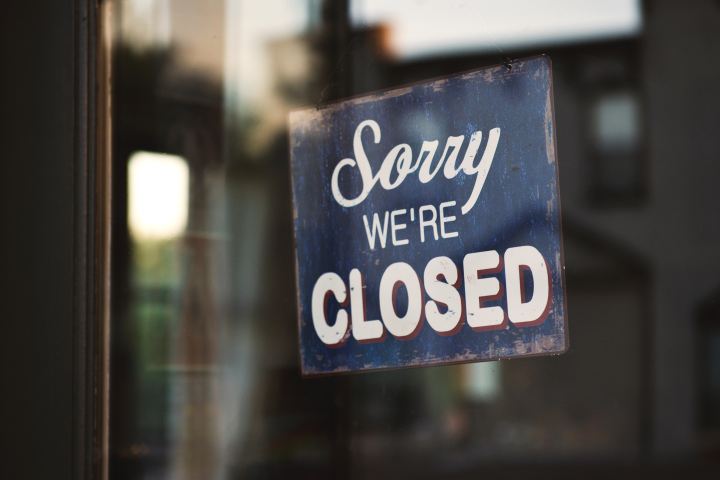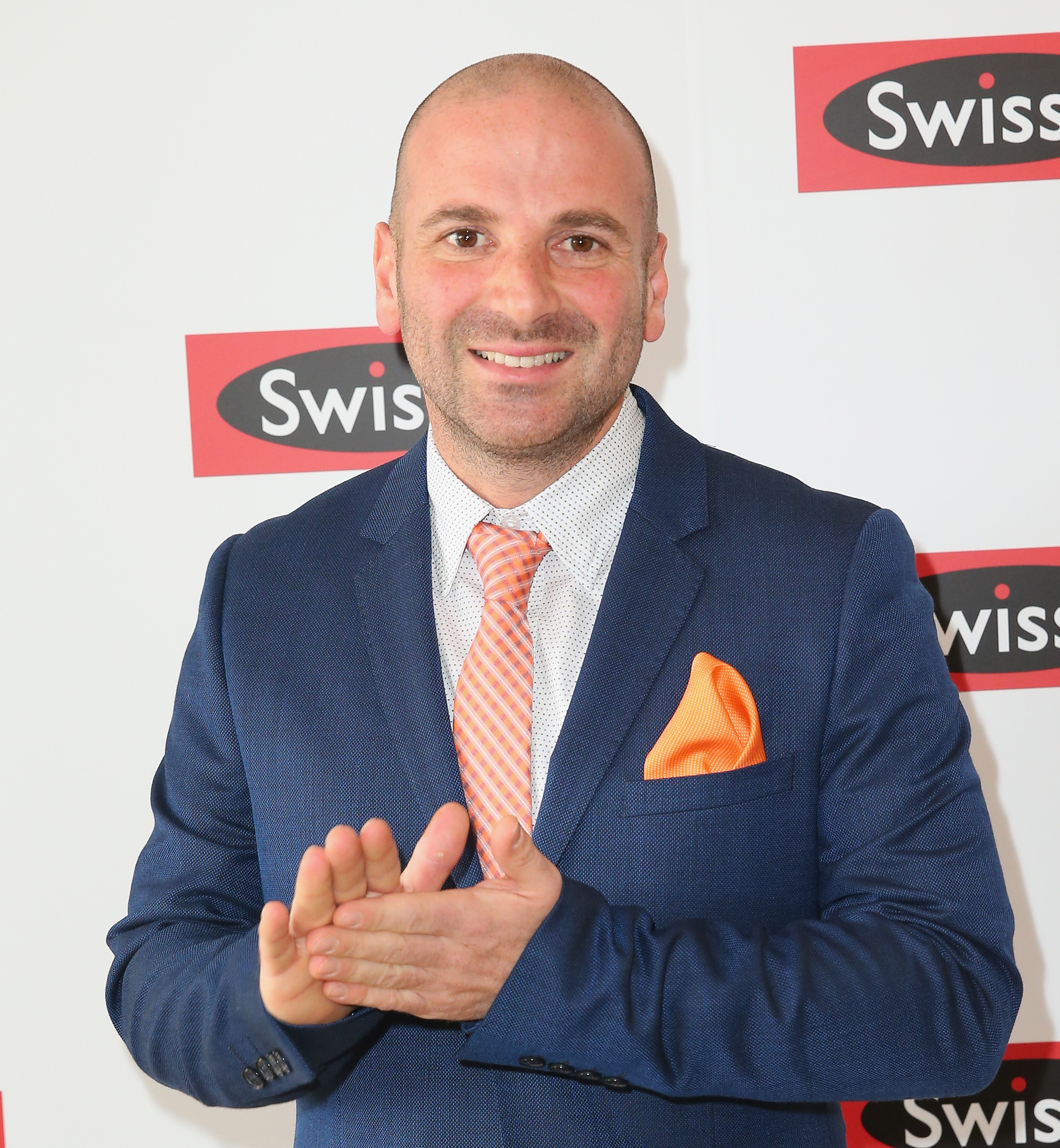GASTROTURF
When the chips are down, and The Last Supper is served

For a little guy, George Calombaris has had a heavy weight to carry. In an industry rife with dodgy staff payment practices, he became the fall guy all other restaurateurs were happy not to be. He owned up, he got fined, he paid up. Still the dogs bayed their outrage. But the fates wanted more from him, and this week the vast bulk of his business went belly up.
If there was a time when George Calombaris was always going to be remembered as the funny, charming little Greek guy from MasterChef Australia, he will now be remembered as the guy who underpaid his restaurant staff and got caught out, fined and justifiably humiliated. This week it got much worse for him when much of his business went into administration at his own behest. Does there come a time when one forgives, if not forgets, and hopes that he has not only learnt his lesson (he has, he told me, and I believe him) but hopes that his talents have a new chance to shine, on the understanding that he does not make the same mistake again? Or are we too cool, too sassy, too superior to forgive?
There’s never any point in resenting the success of someone and wishing that could have been you. There’s every chance that person might come crashing down. Like Calombaris. Not long ago he was the toast of the culinary world. This week, he came crashing down.
There are many people toasting the glum fate of Chef George this week when the former MasterChef Australia judge saw a massive chunk of his Australian business – if not its entirety – go into voluntary administration. This follows the underpayment scandal that has whorled around him in recent years involving the underpayment of millions of Australian dollars to his restaurant staff.
The kind of former staff who may or may not be prepared to spit in a customer’s food are not being slow to applaud from the wings. Who bite snarkily into him on Twitter, to be applauded by their har-harring coterie. I wonder what they’d say to him if he was in front of them, making eye contact. Where’s the empathy gone in this world? Has it left entirely? What will we be left with if those who get caught out, apologise, get fined, pay up, lose much of their business, sell their home, are then still pilloried. Should it be the rack for them? Shall we bring back hanging, drawing and quartering? Until they can take no more and jump off a bridge? And then, what happens next? In this age, I’d put my money on there still being those who’d say, well, he had it coming, the bastard, and good riddance; the gallows are too good for him!

George Calombaris at the Swisse Marquee on Melbourne Cup Day at Flemington Racecourse on November 4, 2014 in Melbourne, Australia. (Photo by Scott Barbour/Getty Images)
Of course he should not have done what he did. That is a given. But a bit of context always broadens a story and the mind. The context here is manifold: Calombaris is a 20% shareholder in the business concerned. While the other shareholders lurk somewhere out of sight – and away from the slings and arrows of public scrutiny – Calombaris, being as famous as he is, has had to carry the entire can for something that invisible others are no less culpable of. His crime, if that’s what it is, is not having paid attention to the minutiae of the payment systems in the MAdE Establishment in which he has that 20% stake. Bad mistake. Big mistake. And that fame is precisely what the other owners of the business liked about him. The frontman of the band, getting all the glory. And taking the fall when things go awry. If I were Calombaris, I’d be mad as hell with the bigger shareholders. Maybe he is.
The shutting down involves 12 restaurants (surely one really good one would have sufficed?), but does not include the chain of Yo-Chi frozen yoghurt outlets Calombaris acquired in 2018. So, while he will undoubtedly be in reduced circumstances, there are a lot of us who wouldn’t mind “only” having a little frozen yoghurt chain. He is said to have placed his luxury double-storey Melbourne pad on the market (ostensibly owned by his wife, it’s been reported, and one can hazard a guess as to why), and job losses for between 400 and 500 staff, depending on which report you read. Read: boy, has this guy paid for his mistake; and will continue to pay. The staff have been paid their outstanding wages, which is more than could be said for the magazine I worked for that went bust in 2001 and left its staff high and dry, a month before Christmas. We’re still waiting for that November cheque.
Which is where my own empathy with the man is rooted. If in a far humbler way. It had nothing to do with paying or not paying staff (our two restaurants that came years later were extremely modest affairs; at times we were the staff), but of having found myself in dire straits and having to dig my way out. And there were reactions to my fate that I found gobsmacking.
Somebody long dead once said of me, after I had left what was then the prime job of my life, because it felt time for a change, “He’ll see his arse!” I didn’t, at least not immediately, as it turned out, though four years later a sudden and unexpected closure of the magazine I was then deputy editor of did turf me and my family onto the street one month before Christmas. I’ve never been able to answer this question: what kind of person gloats in the misfortune of another, or, worse (at least I think it’s w0rse) actually wishes misfortune on them?
Less than a year after that misfortune, and having endured 10 months of battling to make ends meet, we were leaving for the UK to try our luck in newspapers there. We’d sold our much-bonded house to afford the fare, and arrived in Chichester with £900, £750 of which went on the first month’s rent. Luckily, I found a job. Skipping backwards a bit, we’d had a farewell party at a friend’s home in Cape Town before we left. The guests included a high-profile public relations professional who had been all over me when I was in my prime in the Nineties job I mentioned. Soon after her arrival at the farewell party she sidled up to me and whispered in my ear, “Oh how the mighty have fallen”. And smirked off to get a drink. Knowing that we’d battled for most of a year; knowing that we’d sold up and were leaving because I could not find work. I thought then, and I think now, that that said more about her than it did about me.
As it turned out, within one day of my arrival in the UK I had been interviewed for a newspaper job which was confirmed two weeks later. So the formerly (supposedly) mighty and subsequently fallen somehow managed to find their feet. Somewhere. I do sometimes think: what would’ve happened if I hadn’t got that job…
That’s journalism for you. It can be a minefield. The restaurant business is the same. If I had a vrot banana for every restaurant I saw go bust in the Nineties I would be the owner of a fortune in vrot bananas by now. Back then, when that Cape Town job had me review restaurants every week and also write about new eateries, there was a procession of people in and out of my office asking me to help them get rich and famous. Or stay in business.
I saw restaurants open in March, and close in October (hint: don’t open just before the Cape winter unless you have masses of capital and want to use the quieter period to iron out teething issues). I saw places open to acclaim, and watched as the dining out lemmings all flocked to this or that fabulous new place. Leaving their previous fabulous new place behind them. Which would soon close. Then, only months later, an even newer Fabulous New Place would open, and off the lemmings would go again. And another restaurant bites the dust. (Hint: don’t trust the dining out lemmings, they’re as fickle as a politician who’s found a new gravy train.)
One man, whose name (or the name of his then restaurant) I will not mention so as to protect the privacy of his family, begged me to write something to keep his Waterfront restaurant afloat. That’s just not what journalists are there for. The story, if there had been one, would have been that his business was in trouble. I elected not to inflict that indignity on him. This was a man on his knees. I wrote nothing. That makes me human, not noble. Or does it? A few weeks later he shot himself.
One of the best cooks in South Africa in the late Eighties and Nineties – he’d won accolade after accolade for years – was a man whose name I won’t divulge. I had, and still have, great admiration for him. One day, while I was preparing copy for a restaurant guide I was then producing, I found myself arriving for lunch at his restaurant. He was emotional on greeting me, seated me, then told me: “Tony, this is The Last Supper. You are my final customer.”
Course after course then came out. Then he was on the phone to the liquidators, calling them in. Sobbing into the earpiece. It was theatre. It was harrowing. For me, not only him. The doors were barred by late afternoon.
In the entire world restaurant business, which unlike many businesses operates in almost every country on the planet, restaurants come, and restaurants go. It is an unforgiving industry. One poor season and you’re bust. One ill-placed comment by a politician can have foreigners cancelling their plane tickets and going elsewhere in the world instead, and down go another few restaurants at the Cape.
It’s unfair. Life is unfair. Anybody who’s lived more than 15 years knows that. And Tall Poppy Syndrome also comes into play. When Jamie Oliver saw his plump British arse in May 2019 with the closure of 22 of his 25 restaurants, leading to a thousand job losses, I heard a number of people scoff at his misfortune, saying things like “well he bit off more than he could chew har har har” and “well, not surprising, his food was crap”. He has massive armies of haters all over the world. I’m not, myself, a particular fan. But hate? I would have liked to have heard a few more thoughts spared for the 1,000 who then faced unemployment or the mission of having to find a new job. And even though schadenfreude can be strangely fun, despite our better natures, do we really want to gloat over the misfortune of a young man who once made good, and created all those jobs out of nothing, now facing a nighty blow?
And George Calombaris has now seen his great big hairy Greek arse too. I hope he finds a nice comfy chair to put it in when his star is on the rise again and he needs to interview a queue of potential staff. I wonder what they’ll say to his face then? DM






 Become an Insider
Become an Insider